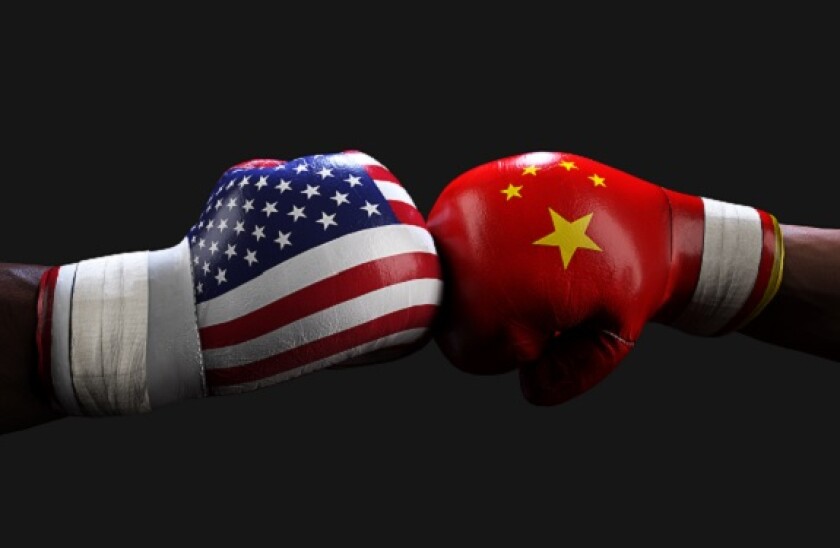The May manufacturing purchasing managers’ index (PMI) edged down to 50.6 from 50.8 in April, according to data released by the National Bureau of Statistics (NBS) on Sunday.
The new orders sub-index increased slightly to 50.9 in May from 50.2 in April. However, the employment sub-index fell back into contractionary territory last month to 49.4 from 50.2.
Services PMI increased by 0.2 percentage point to 52.3 in May due to favourable consumption policies and public holidays, Zhao Qinghe, a senior statistician at the NBS, said in a statement.
*
The Shanghai Stock Exchange has responded to a suggestion during China’s parliamentary meeting last week. The bourse said that it would launch policies regarding market-making and study the possibility of allowing T+0 transactions.
*
China’s international trade in goods and services recorded receipts of Rmb1.53tr with payments of nearly Rmb1.25tr in April, indicating a surplus of Rmb286.8bn, according to the State Administration of Foreign Exchange (Safe).
In dollar terms, the receipts were worth $216.8bn and the payments $176.2bn, with a surplus of $40.6bn.
*
China’s external portfolio investment assets — excluding reserve assets — totalled $646bn by the end of 2019, data from Safe showed last Friday. These included $272.2bn in bonds and $373.8bn in equities.
By country and region, the Hong Kong SAR, the US, Cayman Islands, British Virgin Islands and the UK were the top five recipients of the investments.
*
Securities houses in China will be allowed to issue subordinated bonds in the public market, according to the China Securities Regulatory Commission (CSRC). The CSRC made changes to the existing regulations, which only allowed the securities houses to raise sub debt through private placements.
*
The US would revoke the special trading status for Hong Kong, US president Donald Trump said in a strong-worded announcement last Friday, raising tensions once again with China. The decision follows Beijing’s action to impose a national security law on the city.
Trump said that he would revoke Hong Kong’s preferential status as a separate customs and travel territory from mainland China.
“My announcement today will affect the full range of agreements we have with Hong Kong, from our extradition treaty to our export controls on dual-use technologies and more, with few exceptions,” Trump said. “We will be revising the State Department’s travel advisory for Hong Kong to reflect the increased danger of surveillance and punishment by the Chinese state security apparatus.”
Hong Kong responded on Saturday, calling US trade sanctions against the city “unjustified”.
“We do not believe that sanctions or trade restrictions against Hong Kong are justified,” the government said in a statement. “They will lead to a breakdown of the mutually beneficial Hong Kong-US relationship built up over the years and only hurt local and US businesses in Hong Kong and the people working for them.”
The SAR government added that Hong Kong will continue to rely on “her fundamental strengths” including the rule of law, independence of the judiciary and open trade policy.
In a separate statement on Friday, Trump announced that he would block certain Chinese students from using F or J visas, the most common visas used by students, to enter the US. The action is particularly targeted at blocking students at the graduate level and above.
Trump said that the action will only affect students “who have been employed by or who studied or researched with” Chinese entities that support the country’s “Military-Civil Fusion” strategy.
*
BNP Paribas (China), a wholly-owned subsidiary of the French bank, was fined Rmb2.7m by the People’s Bank of China for failing to verify client identification and to report large and suspicious transactions, the central bank’s Shanghai branch said in a statement last week. CG Lai, chief executive officer of BNP Paribas (China), Xutao Bao, head of compliance, and David Goyon, deputy chief executive officer, were fined Rmb60,000, Rmb45,000 and Rmb60,000 respectively.
*
The People’s Bank of China’s monetary policy analysis group published a report last Friday around the country’s regional economic situation.
The weighted average growth rate of GDP for the Eastern region, Central region, Western region and Northeast region was 6.2%, 7.3%, 6.7% and 4.5% respectively in 2019.
The Eastern region leads the country in economic volume, with high-tech industry investments and strategic investments both growing fast. The Western region saw speedy reforms in its economic structure. Economic collaborations facilitated by the Belt and Road Initiative and foreign capital investments in the region grew rapidly.
*
The CSRC has approved for the International Energy Exchange to launch its low-sulphur fuel oil futures contract starting June 22, according to an update on the securities regulator’s website.

